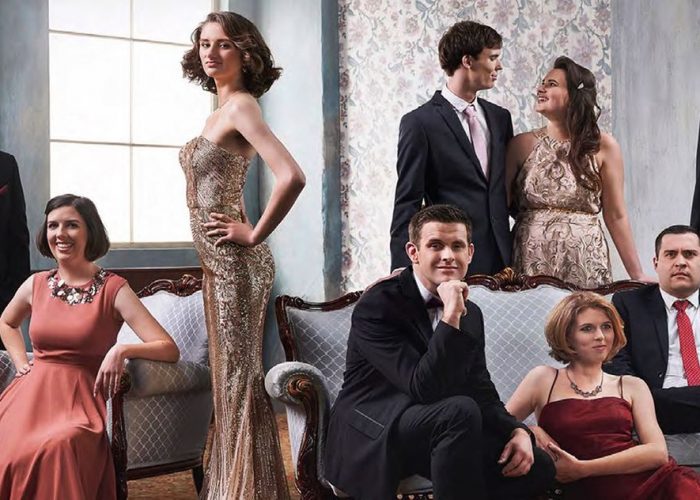After decades of The Bachelor and other shows focused on the straight, white persons experience of love, the reality-dating genre seems to be expanding. A few weeks ago it was with Indian Matchmaking,Netflixs reality show about the Indian arranged-marriage machine. And last week, it was with Love on the Spectrum,an Australian reality-show-cum-docuseries that follows a group of single adults on the autism spectrum as they explore the dating world.
Love on the Spectrum is built like a typical dating show: We meet the 11 daters, and their friends and families, and follow them in various dating scenarios (speed dating, blind dates, etc.). We spend enough time getting to know each of them so that things dont feel voyeuristic (which is unusual for the genre) and the tone is more curious than patronizing although, it doesnt always avoid that territory, as Sarah Kurchak, a writer who is on the autism spectrum, noted in her review of the show for Time. Overall, Love on the Spectrum does something that is curiously absent in a genre that is ostensibly about love, which is actually showing it.
Take Ruth and Thomas, who are engaged (and recently got married). They have a ton of chemistry, and a supportive, loving, and very sexy relationship, which they talk about openly. Its a lot of fun to watch, especially when Thomas a bus driver with perfect comedic timing plans a surprise waterside picnic for their fourth anniversary, a romantic affair that Ruth calls very à la TheBachelor. (She is only occasionally impressed with his romantic gestures: Youre a really special girl, Ruth, he tells her at the end of the date. Well, youre a handsome boy, she responds.) Theres also Chloe, a florists assistant who is tentative about dating after a bad relationship, but is sincere about trying again. She has one bad date, but its followed by an excellent one picking sunflowers with a young woman named Lotus. Its exciting to see them both leave totally buoyant, with plans to get together again.
Love on the Spectrum is not a perfect show; its often overly sentimental, the participants are mostly straight, white, and middle class, and as many critics who are on the spectrum have noted its clearly made for a neurotypical audience. This is problematic in a lot of ways, many of which I only realized after reading feedback from a neurodiverse audience. For instance, how all of the dates were strictly between autistic people, and how ridiculous the cutesy music is for a dating show about adults. Whats more, the show has been almost routinely reviewed in infantilizing terms (pure, sweet, honest, heartwarming, etc.). As Charli Clement, one of those critics, wrote: Im frustrated, because Love on the Spectrum could have been valuable representation for autistic people [but] this show feels like autistic people being used as inspiration for neurotypical people to reflect on themselves The overarching theme, to me, is of othering treating us as intrinsically different from neurotypical people.
I hope these issues are addressed if theres a second season, but I agree with Kurchaks observation that this first run of Love on the Spectrum could have the potential to open minds, foster genuine empathy for its stars and maybe even spark interest in more autistic stories, especially given that something as big as Netflix is investing in it. And from a genre perspective, I hadnt realized until watching this show how infrequently dating shows actually show us love. Romantic love, yes, but also self-love, familial love, and love between friends and communities. Its strange that the genre is so often devoid of this, but its one of the things that make Love on the Spectrum a mostly gratifying watch.
Get the Cut newsletter delivered daily
Terms & Privacy NoticeBy submitting your email, you agree to our Terms and Privacy Notice and to receive email correspondence from us.read more
A Dating Show With Actual Love?


